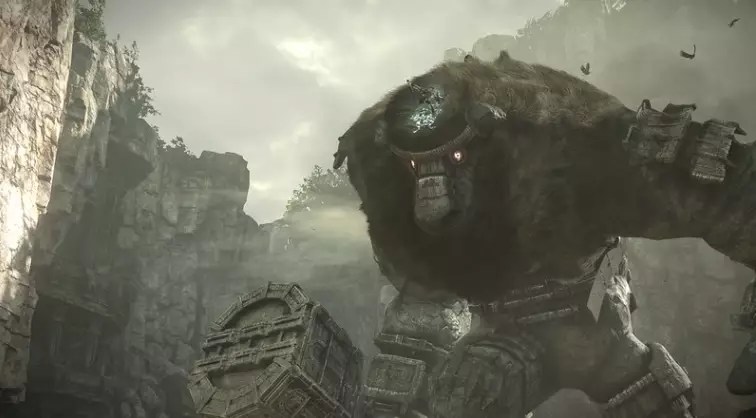The long-anticipated film adaptation of the beloved video game “Shadow of the Colossus” has been in a development limbo for over ten years. Ever since it was first announced in 2009, fans have been eagerly waiting for any sign of progress. The game’s unique blend of artistry and storytelling has generated significant interest, yet tangible results have been elusive. Director Andy Muschietti, currently at the helm of this project, recently shed light on the current state in an interview, igniting a flicker of hope among fans.
Muschietti has not hesitated to express his admiration for the source material, dubbing “Shadow of the Colossus” a “masterpiece.” His assertion comes with a personal touch, as he shared his experience of playing the game multiple times. This connection to the original material positions him as a potential guardian of its essence—vital for any successful adaptation. However, as Muschietti points out, the artistic vision must be tempered with financial reality. He comments on the crucial role that budgetary allocations play in the manifestation of this cinematic dream. The director hinted at a spectrum of funding possibilities, suggesting that the willingness of studios to invest in the project will be pivotal for its future.
It is crucial to recognize that, in the film industry, financial viability often determines the fates of artistic aspirations. Muschietti’s remarks about the budget—whether it’s $200 million or less—reflect a common theme in Hollywood: the balancing act between creative vision and commercial practicality. While “Shadow of the Colossus” has a devoted following, its niche status could hinder large-scale financial backing, which is essential for bringing grand visual narratives to life on screen. The director’s aspirations reflect a desire for a faithful and expansive adaptation, which could be at odds with the realities imposed by studio executives focused on profit margins.
A Shifting Landscape
Muschietti’s journey has also been marked by impressive achievements within the horror genre, particularly with his works “It” and “It: Chapter Two.” His experience has drawn attention, yet it perhaps distracts from the primary focus of “Shadow of the Colossus.” The constant movement of high-profile directors and shifts in project priorities exemplify a broader industry trend where creative visions often become sidetracked by new opportunities.
Despite uncertainty, the prospect of “Shadow of the Colossus” being made is tantalizing, but it remains shrouded in doubt. Other upcoming video game adaptations highlight an evolving landscape in which mainstream studios are increasingly willing to explore unique narratives. Films like “Minecraft” and sequels to popular franchises provide competition for studio resources. For now, all eyes remain on Muschietti and the path forward. In a landscape peppered with adaptations of video game properties, fans can only hope that this particular venture is not lost in the shadows of production challenges. Where directors’ dreams meet reality is a common struggle, and “Shadow of the Colossus” may be at a crossroads that will define its destiny.


Leave a Reply